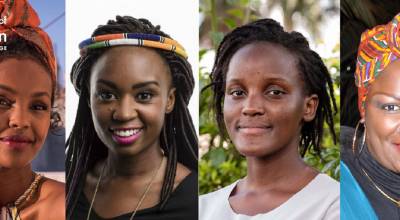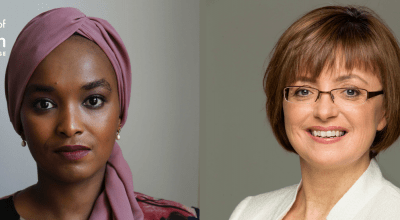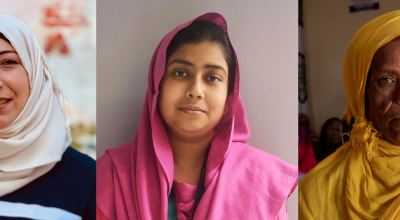
Knowledge Hub
According to the UN a record 235 million people will need humanitarian assistance and protection this year, a near 40 per cent increase on 2020. As the demand for aid grows, the humanitarian sector is changing too.
Previous humanitarian crises have typically centred on a geographical area - such as natural disasters in the Caribbean or conflict in the Horn of Africa - the coronavirus pandemic has emphasised that our societies are inextricably linked and highlighted the impact solidarity can have.
Organisations around the world are looking for ways to adapt to the crises of today, and prepare for the problems of tomorrow. Here, it is particularly important to apply a gender transformative approach, because as we know, humanitarian crises disproportionately affect women and girls and can exacerbate pre-existing gender inequalities. Among other things, they face the increased prevalence of, and exposure to, gender based violence (GBV) and are often hampered in accessing life-saving services. The reality in many crisis settings is that women are first responders, as they are already at the location and know people, structures, networks and needs. Yet, they remain underrepresented in humanitarian coordination and programming.
Looking at three current global trends in humanitarian aid, we consider how these challenges can be used to help bring about change for women and girls.
Considering localisation
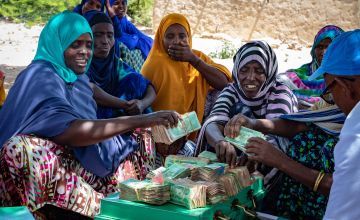
A growing trend within the sector is the prioritisation of local leadership. Agencies and charities are recognising the insight local actors can bring to decision-making, and have begun supporting a shift in workflows to create space for local voices. While the development sector can provide a framework for an area, often the most experienced individuals are already a part of the community.
The emphasis has shifted towards the knowledge individuals on the ground can bring to an issue. Utilising the knowledge of local leaders, change that works alongside the lifestyle of a community is often the most impactful. This is not new to Concern, who have been engaging with communities for decades. Many projects are designed with communities through the use of “participatory methodologies” where communities are facilitated to identify their needs, their strengths, their own resources and to decide on what projects to prioritise, then to plan these, implement them and monitor progress themselves. Furthermore, Concern ensures women are fairly represented, recognizing their vital input in to the process and their role as changemakers in the community.
Global solidarity
Over the last year, the pandemic has made clear that with our health under threat, global solutions are suddenly more mainstream. The idea of a ‘surprise event’ (whether an organised cyber threat or climate change) has been predicted for some time. 2021 was the year we first experienced it on an international scale, but it seems likely that the chaos of ‘unusual’ events will become, ironically, more common and the idea of global solidarity will seem less challenging.
But it isn’t as simple as every individual being equally at risk. Women and girls globally, especially those living in poverty, have seen their situations worsen. According to a report by McKinsey & Company, women’s jobs are 1.8 times more vulnerable to this crisis than men’s jobs and although women make up 39 percent of global employment they account for 54 percent of overall job losses.
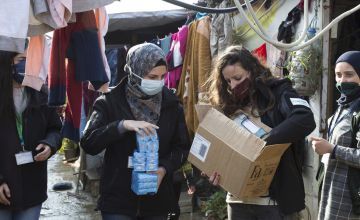
The Independent Expert at the UN, Virginia Dandan, defined global solidarity as ‘not seeking to homogenise but rather be the bridge across differences and opposites’. The international effort to provide vaccinations to the most vulnerable should be seen in this light. The UK has helped raise $1 billion for COVAX, a United Nations coalition that aims to accelerate the development and manufacture of vaccines, and guarantee fair, equitable and quick access around the world. However, so far So far, 75% of the world’s Covid-19 vaccines have been distributed in just 10 countries. 60 to 70 percent of the world’s population must be vaccinated to reach heard immunity and as we know, ‘no one is safe, unless everyone is safe’.
The impact of aid cuts
It seems shocking that while this is the humanitarian landscape, governments are electing to slash aid budgets for the most vulnerable. Despite a commitment to a 0.7% aid budget, passed by parliament in 2015, the UK government has successfully pushed through a reduction to 0.5%.2 That’s around £4 billion less money available to aid the most vulnerable; altering the programmes already in place - and damaging the progress made. As an example, the cuts have completely ended two of Concern’s important programmes in Bangladesh and Malawi that were delivering essential services to the poorest and most marginalised communities.
For women and girls living in poverty, these cuts could be devastating, profoundly altering the remainder of their lives. Funding for girls’ education has been cut by 40% since 2019, resulting in an estimated 700,000 fewer girls receiving an education.
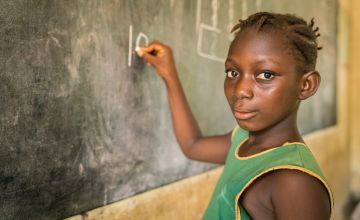
These cuts include the funding of UN programmes. UN data shows that last year, around 815,500 women and girls received reproductive health services; and the UN’s Central Emergency Response Fund allocated over $60 million to gender-based violence-focused programmes. If aid reform continues to involve cuts, it’s likely that the UN’s gender equality pledges will not take place. Women and girls will suffer as a result.
As challenges for the humanitarian sector increase, so do the opportunities for innovation. Recognising hardship and focusing on a solution-based response is our responsibility. Initiatives across the Global South aim to eliminate poverty through nurturing strategic partnerships and prioritising gender equality as a driver of change. The ultimate aim should be to transform the root causes of gender inequality and place women’s empowerment at the heart of humanitarian and development programmes.
Join the Women of Concern community for the opportunity to hear from women at the forefront of creating change, on the frontlines and in some of the world’s poorest places.
Other ways to help
Donate now
Give a one-off, or a monthly, donation today.
Join an event
From mountain trekking to marathon running, join us for one of our many exciting outdoor events!
Buy a gift
With an extensive range of alternative gifts, we have something to suit everybody.
Leave a gift in your will
Leave the world a better place with a life-changing legacy.
Become a corporate supporter
We partner with a range of organisations that share our passion and the results have been fantastic.
Create your own fundraising event
Raise money for Concern by organising your own charity fundraising event.



